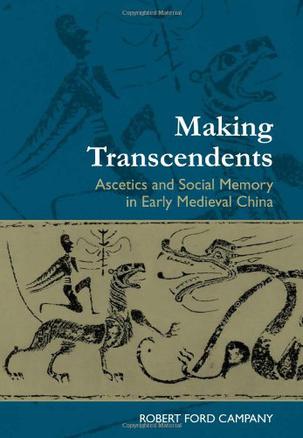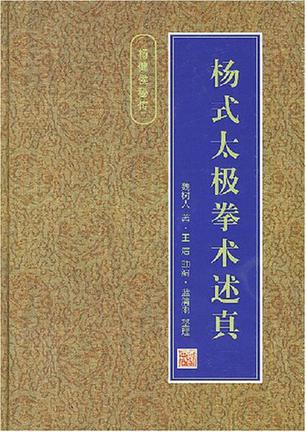 Making Transcendentstxt,chm,pdf,epub,mobi下载 Making Transcendentstxt,chm,pdf,epub,mobi下载
作者:Robert Ford Campany
出版社: University of Hawaii Press
副标题: Ascetics and Social Memory in Early Medieval China
出版年: 2009-3-11
页数: 300
定价: USD 48.00
装帧: Hardcover
ISBN: 9780824833336
内容简介 · · · · · ·By the middle of the third century B.C.E. in China there were individuals who sought to become transcendents (xian)--deathless, godlike beings endowed with supernormal powers. This quest for transcendence became a major form of religious expression and helped lay the foundation on which the first Daoist religion was built. Both xian and those who aspired to this exalted status ...
By the middle of the third century B.C.E. in China there were individuals who sought to become transcendents (xian)--deathless, godlike beings endowed with supernormal powers. This quest for transcendence became a major form of religious expression and helped lay the foundation on which the first Daoist religion was built. Both xian and those who aspired to this exalted status in the centuries leading up to 350 C.E. have traditionally been portrayed as secretive and hermit-like figures. This groundbreaking study offers a very different view of xian-seekers in late classical and early medieval China. It suggests that transcendence did not involve a withdrawal from society but rather should be seen as a religious role situated among other social roles and conceived in contrast to them. Robert Campany argues that the much-discussed secrecy surrounding ascetic disciplines was actually one important way in which practitioners presented themselves to others. He contends, moreover, that many adepts were not socially isolated at all but were much sought after for their power to heal the sick, divine the future, and narrate their exotic experiences. The book moves from a description of the roles of xian and xian-seekers to an account of how individuals filled these roles, whether by their own agency or by others'--or, often, by both. Campany summarizes the repertoire of features that constituted xian roles and presents a detailed example of what analyses of those cultural repertoires look like. He charts the functions of a basic dialectic in the self-presentations of adepts and examines their narratives and relations with others, including family members and officials. Finally, he looks athagiographies as attempts to persuade readers as to the identities and reputations of past individuals.
目录 · · · · · ·Acknowledgments • xi
Introduction • xiii
Chapter 1 Bringing Transcendents Down to Earth • 1
Chapter 2 The Transcendent’s Cultural Repertoire • 39
Chapter 3 Deeper Repertoire Analysis: “Avoiding Grains” • 62
Chapter 4 Secret Arts, Manifest Wonders • 88
· · · · · ·()
Acknowledgments • xi
Introduction • xiii
Chapter 1 Bringing Transcendents Down to Earth • 1
Chapter 2 The Transcendent’s Cultural Repertoire • 39
Chapter 3 Deeper Repertoire Analysis: “Avoiding Grains” • 62
Chapter 4 Secret Arts, Manifest Wonders • 88
Chapter 5 Verbal Self-Presentation and Audience Response • 130
Chapter 6 Adepts and Their Communities • 151
Chapter 7 Adepts, Their Families, and the Imperium • 186
Chapter 8 Hagiographic Persuasions • 216
Epilogue • 259
Bibliography • 267
Index • 291
· · · · · · ()
|
 Making Transcendentstxt,chm,pdf,epub,mobi下载
Making Transcendentstxt,chm,pdf,epub,mobi下载 首页
首页



感觉学到了非常多的知识
不错,强烈推荐!
极力推荐
再造知识结构。